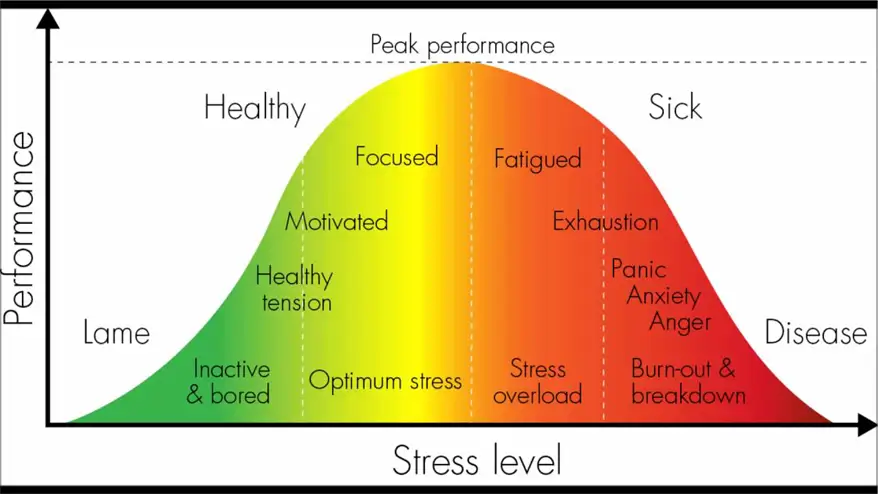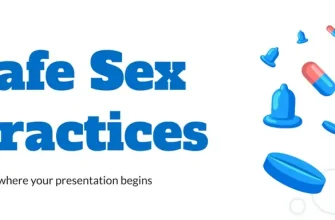Maintaining a healthy sex life is a vital component of overall well-being. It enhances emotional intimacy, reduces stress, boosts self-esteem, and contributes positively to physical health. According to a 2020 study published in the Journal of Sexual Medicine, couples who engage in regular sexual activity report 55% higher levels of relationship satisfaction and 33% greater individual happiness compared to those who do not. Sexual health is not just about the absence of disease or dysfunction; it’s a state of physical, emotional, mental, and social well-being in relation to sexuality.
Below are evidence-based tips to help you cultivate a fulfilling and healthy sex life.
Prioritize Open Communication

Effective communication with your partner is the cornerstone of a healthy sexual relationship. It fosters trust, understanding, and mutual satisfaction. Open dialogue about your needs, desires, and boundaries can significantly enhance intimacy and prevent misunderstandings.
Discussing sexual preferences might feel awkward at first, but it’s essential for mutual satisfaction. Share your likes, dislikes, fantasies, and any concerns you may have. Encourage your partner to do the same. Active listening is crucial—pay attention to verbal and non-verbal cues.
According to a 2019 survey by the American Sexual Health Association, 70% of individuals who communicate openly about sex report higher levels of satisfaction. Moreover, couples who regularly discuss their sexual relationship are more likely to resolve conflicts effectively, leading to a stronger bond.
Tips for Effective Communication:
- Choose the Right Time and Place: Discuss sensitive topics in a comfortable, private setting.
- Use ‘I’ Statements: Express your feelings without blaming your partner (e.g., “I feel loved when we…”).
- Be Honest and Respectful: Honesty builds trust, but it’s important to convey your thoughts respectfully.
- Seek Feedback: Ask open-ended questions to understand your partner’s perspective.
Maintain Physical Health

Your physical well-being directly impacts your sexual health. Good health enhances stamina, flexibility, and overall sexual function. Regular exercise, a balanced diet, and adequate sleep are fundamental components.
Exercise: Engaging in physical activity improves cardiovascular health, which is essential for sexual performance. The World Health Organization recommends at least 150 minutes of moderate aerobic activity per week. Exercise increases blood flow, boosts energy levels, and can enhance libido.
Diet: A balanced diet rich in fruits, vegetables, whole grains, lean proteins, and healthy fats supports hormonal balance and energy levels. Foods high in antioxidants, like berries and nuts, can improve circulation. Certain nutrients, such as zinc and omega-3 fatty acids, play a role in sexual health.
Sleep: Adequate sleep is crucial for hormonal regulation. Adults typically need 7-9 hours per night. Sleep deprivation can lead to decreased libido and increased stress levels, negatively impacting sexual desire and performance.
Impact of Physical Health on Sexual Function:
- Cardiovascular Health: Improved blood flow enhances arousal and performance.
- Hormonal Balance: Proper nutrition and sleep support healthy levels of sex hormones like testosterone and estrogen.
- Energy and Stamina: Physical fitness boosts endurance for prolonged intimacy.
Statistic: A 2021 study in the International Journal of Clinical Practice found that poor physical health accounts for 30% of sexual dysfunction cases.
Manage Stress Levels

Stress is a common part of modern life, but chronic stress can have detrimental effects on your sex life. High stress levels increase cortisol production, which can suppress sex hormones like testosterone, leading to decreased libido and sexual performance issues.
Effects of Stress on Sexual Health:
- Reduced Desire: Stress can diminish sexual interest.
- Performance Anxiety: Worrying about sexual performance can create a cycle of dysfunction.
- Emotional Disconnect: Stress may hinder emotional intimacy, affecting the quality of sexual experiences.
Strategies to Manage Stress:
- Mindfulness and Relaxation Techniques: Practices such as meditation, yoga, and deep-breathing exercises can reduce stress levels by up to 31%, as reported by the Journal of Behavioral Medicine (2019).
- Physical Activity: Exercise releases endorphins, natural mood lifters that can alleviate stress.
- Time Management: Prioritizing tasks and setting realistic goals can reduce feelings of being overwhelmed.
- Professional Support: Counseling or therapy can provide coping mechanisms and address underlying issues.
The Anxiety and Depression Association of America states that stress affects sexual desire in up to 25% of individuals.
Limit Alcohol and Avoid Smoking

While moderate alcohol consumption may lower inhibitions, excessive drinking can impair sexual function. Alcohol is a depressant that can decrease libido and inhibit performance. Chronic heavy drinking can lead to long-term sexual dysfunction.
Alcohol’s Impact on Sexual Health:
- Men: Excessive alcohol can cause erectile dysfunction and decrease testosterone levels.
- Women: It can lead to decreased vaginal lubrication and difficulty achieving orgasm.
Smoking’s Impact:
Smoking damages blood vessels, reducing blood flow necessary for arousal and sexual function. It is linked to erectile dysfunction in men and decreased sexual satisfaction in women.
Benefits of Reducing Substance Use:
- Improved Circulation: Enhances arousal and responsiveness.
- Hormonal Balance: Supports healthy levels of sex hormones.
- Increased Energy Levels: Enhances overall vitality and stamina.
Data Point: The Centers for Disease Control and Prevention (CDC) notes that smokers are twice as likely to experience sexual dysfunction compared to non-smokers.
Address Medical Concerns

Various medical conditions and medications can affect sexual health. It’s essential to address these concerns proactively with healthcare professionals.
Common Medical Issues Affecting Sexual Health:
- Chronic Illnesses: Conditions like diabetes, heart disease, and hypertension can impair sexual function.
- Hormonal Imbalances: Low testosterone or estrogen levels can decrease libido.
- Mental Health Disorders: Depression and anxiety can reduce sexual desire.
Medications with Sexual Side Effects:
- Antidepressants: Up to 60% of users experience decreased libido, delayed orgasm, or erectile dysfunction, according to the National Institute of Mental Health.
- Blood Pressure Medications: Some can cause erectile dysfunction or decreased arousal.
Steps to Take:
- Consult Your Doctor: Discuss any sexual side effects; adjustments or alternatives may be available.
- Regular Check-ups: Early detection of medical issues can prevent long-term problems.
- Specialist Referrals: Consider seeing a urologist, gynecologist, or endocrinologist for specific concerns.
Example: Adjusting medication dosage or switching to a different drug under medical supervision can alleviate sexual side effects.
Practice Safe Sex

Protecting yourself and your partner from sexually transmitted infections (STIs) is fundamental to a healthy sex life. Safe sex practices ensure that sexual activity is enjoyable and worry-free.
Key Practices:
- Use Protection: Condoms are 98% effective at preventing STIs and unwanted pregnancies when used correctly.
- Regular Testing: Get screened for STIs at least once a year or when entering a new relationship.
- Open Communication: Discuss sexual health and history with your partner before becoming intimate.
- Vaccinations: Consider vaccines for preventable diseases like HPV and Hepatitis B.
Global Perspective: The World Health Organization estimates that over 1 million STIs are acquired daily worldwide, emphasizing the importance of safe sex practices.
Explore and Educate

Continual learning and exploration can enhance sexual satisfaction and keep the relationship dynamic. Understanding your own body and your partner’s preferences can lead to more fulfilling experiences.
Ways to Explore and Educate:
Educational Resources:
- Books and Articles: Provide insights into sexual techniques and intimacy.
- Workshops and Seminars: Offer interactive learning experiences.
Communication:
- Discuss Fantasies: Sharing desires can strengthen intimacy.
- Provide Feedback: Constructive feedback can improve future encounters.
Experimentation:
- Try New Activities: Introduce variety to prevent routines from becoming stale.
- Use Sensual Aids: Incorporate items like massage oils or toys to enhance experiences.
Tip: Always ensure that exploration is consensual, respectful, and comfortable for both partners.
Foster Emotional Intimacy

Emotional closeness enhances physical intimacy. A strong emotional connection can lead to more satisfying sexual experiences and deepen the bond between partners.
Building Emotional Intimacy:
- Spend Quality Time Together: Engage in shared hobbies or activities.
- Express Appreciation: Regularly acknowledge and thank your partner for their contributions.
- Show Affection: Small gestures like holding hands, hugging, and kissing build connection.
- Practice Empathy: Understand and validate your partner’s feelings.
Physiological Impact: Increased emotional closeness raises oxytocin levels—the “love hormone”—which enhances feelings of trust and bonding.
Insight: According to a 2022 study in the Journal of Marriage and Family, couples with high emotional intimacy report 45% better sexual satisfaction.

Understanding that sexual desire and performance can fluctuate is important for maintaining a healthy perspective on your sex life. Unrealistic expectations can lead to unnecessary stress and disappointment.
Realistic Approaches:
- Acknowledge Life Changes: Factors such as aging, stress, and health conditions can affect libido.
- Avoid Comparisons: Every relationship is unique; comparing yours to others or media portrayals can create false standards.
- Focus on Quality Over Quantity: The frequency of sexual activity is less important than the satisfaction derived from it.
Communication Strategies:
- Discuss Changes Openly: Sharing feelings about changes in desire can prevent misunderstandings.
- Set Mutual Goals: Align on what you both want from your sexual relationship.
Advice: A 2021 study in the Journal of Sex & Marital Therapy found that 65% of couples benefited from aligning their sexual expectations, leading to reduced anxiety and increased satisfaction.
Seek Professional Help When Needed

f you experience persistent sexual health issues, seeking professional assistance is a proactive step toward resolution. Professionals can provide tailored strategies and treatments.
Types of Professionals:
- Sex Therapists: Help address psychological barriers, performance anxiety, and relationship issues.
- Medical Doctors: Diagnose and treat physiological problems affecting sexual function.
- Counselors or Psychologists: Assist with emotional or mental health issues impacting sexuality.
When to Seek Help:
- Persistent Issues: Problems that last longer than six months.
- Emotional Distress: If sexual difficulties cause significant stress or relationship strain.
- Physical Symptoms: Pain during sex, loss of sensation, or other physical concerns.
Fact: Despite the prevalence of sexual dysfunction—affecting approximately 43% of women and 31% of men—only 14% of individuals seek help, as noted by the American Urological Association.
A healthy sex life is an integral aspect of overall health and happiness. By focusing on open communication, maintaining physical health, managing stress, fostering emotional intimacy, and being proactive about addressing issues, you can enhance your sexual experiences and strengthen your relationship. Remember that sexual health is a journey that involves both partners, and staying informed and engaged is key to a satisfying and fulfilling life.
References:
- World Health Organization. (2020). Physical Activity.
- Journal of Sexual Medicine. (2020). The Impact of Sexual Activity on Relationship Satisfaction.
- American Sexual Health Association. (2019). Communication and Sexual Satisfaction Survey.
- International Journal of Clinical Practice. (2021). Physical Health and Sexual Dysfunction.
- Centers for Disease Control and Prevention. (2021). Smoking and Sexual Health.
- National Institute of Mental Health. (2020). Mental Health Medications.
- World Health Organization. (2021). Sexually Transmitted Infections (STIs).
- Journal of Marriage and Family. (2022). Emotional Intimacy and Sexual Satisfaction.
- Journal of Behavioral Medicine. (2019). Mindfulness and Stress Reduction.
- National Institute on Alcohol Abuse and Alcoholism. (2020). Alcohol’s Effects on the Body.
- Journal of Sex & Marital Therapy. (2021). Aligning Sexual Expectations in Relationships.
- American Urological Association. (2021). Prevalence of Sexual Dysfunction.

Emily Dailey
Sexual Wellness Editor
Emily Dailey has over 10 years of experience writing and curating content about sexuality and relationships. With a portfolio of 150+ articles, she is dedicated to promoting open conversations and helping people embrace their desires with confidence and understanding.








